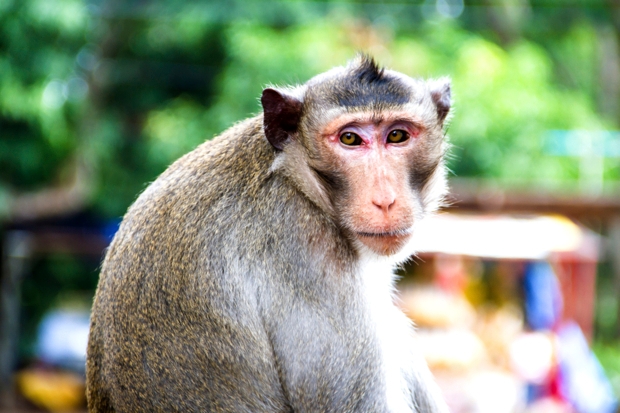Depressed and demoralised after the defeat of his nation of farmers in the second Boer war, Eugène Marais, an Afrikaner patriot, lawyer, naturalist, poet, lifelong morphine addict and journalist, went to live with a troop of baboons in the then remote Waterberg area of South Africa. He camped in their vicinity and was gradually accepted by them and afforded a place in their society. His books about his experiences, My Friends the Baboons and The Soul of the Ape, have subsequently made his name as the father of the scientific study of the behaviour of animals. In The Soul of the Ape he proposed a theory of the evolution of the human psyche that runs approximately as follows. Man and all the higher primates are in a state of bewilderment. Why? Because before the unlikely genetic mutation that gave rise to human intelligence and consciousness, the higher primates were no more intelligent than rodents.
 Jeremy Clarke
Jeremy Clarke
We’re all just bewildered apes – my financial adviser proves it
Money, mortgages and criminal records

issue 05 April 2014






Comments
Join the debate for just $5 for 3 months
Be part of the conversation with other Spectator readers by getting your first three months for $5.
UNLOCK ACCESS Just $5 for 3 monthsAlready a subscriber? Log in